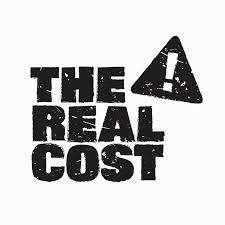If an agency told you that they want you to work for them, but that for the same work they will pay you £2,000 less this year than last, how likely would you be to say no?However, agencies don’t say that. Instead they say “In order to retain the contract and therefore maintain the service … as we know it for service users, deaf patients and interpreters alike, [we have] had to significantly alter the prices that we charge our client organisations and agree to reducing the minimum booking duration to two hours.”

Yet the impact on you…
…of taking one such booking a week at these reduced rates over a year could cost you exactly that, a drop in income of £2,000. It can be difficult to see the larger impact of these apparently small reductions to your overall income, and that of colleagues who are expected to work at the same reduced rate.
And so, to help you decide…
…whether you should accept the reduced fees and terms, NUBSLI has provided this handy guide to what each reduction means for you, showing you what it will cost you each week, month, annually and cumulatively. For comparison we’ve used the NUBSLI fees guidance rates. If your charge more than the NUBSLI guidance, then your loss is greater. You’ll find real life examples, with details on the excel spreadsheet, which you can download in the calculator page shown below. In each case interpreters have really been asked to absorb these costs.

So, when offered that booking, think about what saying yes is really costing you.
Use our calculator to work out how much you stand to lose by accepting a cut to your fee
We’ve created an online calculator to help you work out how much you stand to lose over a period of time if you were to accept lower fees.Use the calculator
Julia in London:
charged a half-day minimum, but the agency wants to pay a two-hour minimum instead.If this affects one booking a week, over a year Julia will lose £2,000.
Theresa in Brighton:
currently charges a full day’s fee for court bookings.The agency now wants to pay her for the ‘hours worked’. If booked 9:30-4:30, with lunch hour unpaid, that’s 6 hours.
Sam in Devon:
has just been told that the agency will no longer pay travel. One of her regular bookings (for 12 sessions of counselling) is a 50 mile drive. If she accepts this booking she loses £270.
Ben in Sheffield:
accepted a minimum call out fee of £90 for some local health bookings, but the agency will now only pay £60. If Ben currently does an average of two bookings a week with this agency, over the year this will cost him £2,880
Mark in Wales:
is a TSLI. He’s been told by colleagues that the normal full day charge for a TSLI is £200 plus travel.An agency has asked him to do a regular once a week AtW booking for £175. If Mark agrees to the lower fee he will lose £1,200 of income.That’s like doing 6 days work for free.
In NUBSLI’s 2015-16 market conditions survey a number of interpreters in rural areas explained that because of the distance and travel involved they could often only do one booking in a day, and that the reduction from half day plus travel to two hours minimum without charging travel made the bookings unviable.
So for Sam, where she used to charge £123 for one of the counselling assignment days (£100 half a day, £23 drive 50 miles), she would now get £67.Over 12 sessions of counselling that will cost her £672.
And of course, like Sam, the reality for many of us is that we are facing these changes not just for one booking, but with many bookings, e.g. a reduction to two hours minimum, travel no longer paid, etc.
